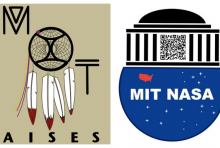The MIT Indigenous Peoples Advocacy Committee (IPAC) in part with MIT's American Indian Science and Engineering Society (AISES), Native American Student Association (NASA) and other Indigenous MIT students/alumni developed this land acknowledgement statement.

MITOS is working to promote environmental justice and center the values of diversity, equity, belonging, and inclusion in all levels of our work, in line with the strategic priorities of the Institute Community and Equity Office (ICEO) and MIT’s Campus Services and Stewardship units.
This work includes developing a deep understanding of the racial injustices that contribute to the unequal distribution of environmental costs, benefits, and conditions in communities. We also seek to advance an inclusive process, recognizing that the sustainability field has often marginalized groups who are the closest to pollution, most impacted by climate change, and who have the knowledge to contribute the most innovative solutions.
As MIT’s Fast Forward Climate Plan recognizes, “the world will not solve the climate problem without solving the intertwined problems of equity and economic transition.”
Learning, Collaborating, Doing - A New Vision
Through learning and collaboration, we are working with partners across the Institute, the Boston area, and beyond to develop actionable strategies that eliminate inequities and advance a healthy, just MIT community.
What might this look like? As we get to work, we envision an environmentally just community that ensures our local air is clean for all residents by maximizing renewable energy, material reuse, and green space and minimizing fossil fuels, waste incineration, and traffic congestion. We imagine a food system that supports local growers and small businesses, and is nutritious and accessible for all. And much more. We are exploring solutions that reduce the campus's impact on the environment, while nurturing and uplifting people.
Read our draft framework here. We welcome comments and suggestions.
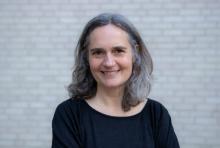
Professor Paxson discusses how the "small but mighty" Anthropology department contributes to climate justice education and more.
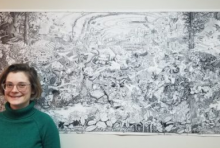
Recent ESI white paper explores issues related to just transition to a low-carbon economy, “Changes in the contribution of coal to tax revenues in Greene County, PA, 2010-2019.”
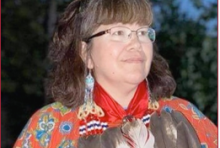
Patricia Saulis is Executive Director of the Maliseet Nation Conservation Council and an MIT Visiting Scholar in 2020-2021 in Comparative Media Studies. This is her talk: “Creating Space for Balance: Indigenous Knowledge and Western Science — Two-Eyed Seeing — in Environmental Justice and Media”
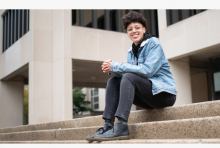
Exploring her identity through writing has clarified senior Mimi Wahid’s desire to serve rural Southern communities like her hometown.
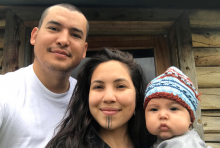
Linguistics graduate student Annauk Olin is helping her Alaska Native community preserve their language and navigate the severe impact of climate change.
Recent MITOS Workshops
Climate Community Collaborative (September 20-21, 2023)
A convening of climate leaders from across sectors and communities, including academic, civic, nonprofit, tribal, and industry. We will actively engage in listening, understanding the landscape of current efforts and challenges, forming connections, and co-creating a vision for a Climate Community Collaborative.
ICEO Community Dialogues: Exploring Climate & Environmental Justice (Thursday, March 4, 2021)
An opportunity to reflect on your role in promoting climate and environmental justice at MIT with Susy Jones, MITOS; Asia Hypsher ’21; and Patricia Saulis, MLK Visiting Scholar, Executive Director, Maliseet Nation Conservation Council, Canada
Slides, Recap, and Follow Up Resources
Sustainability Connect: Exploring the Social Justice and Sustainability Nexus in Colombia, the U.S., and Campus (October 15, 2020)
With Susy Jones, MITOS; Janelle Knox Hayes, Associate Professor Associate Professor of Economic Geography and Planning; Luis Gilberto Murillo-Urrutia, Research fellow at ESI & Former Minister of Environment and Sustainable Development, Colombia; and Marcela Angel, Research Associate at ESI
ICEO Day of Dialogue: Climate, Sustainability, & Justice at MIT (August 5, 2020)
This session opens up a dialogue to discuss the connection between environmental racism and justice and our work advancing a sustainable campus. With Susy Jones, MITOS; Justin Steil, Associate Professor of Law and Urban Planning; and Mimi Wahid ‘21
The Institute Community and Equity Office (ICEO) is a resource for community, equity, inclusion, and diversity policies and resources, and an organizer of related activities and conversations.
ESI pursues multidisciplinary research, education, events, and partnerships to help move society toward an environmentally and socially sustainable future - including many issues related to environmental justice.
The Department of Urban Studies & Planning (DUSP) hosts classes, research and events across topics of equity and justice- related to transportation, housing, climate resiliency, civic design and more.
The PKG Center is the epicenter of public service at MIT, and hosts many opportunities and resources for students to engage in meaningful work and conversations around equity and justice in communities.



